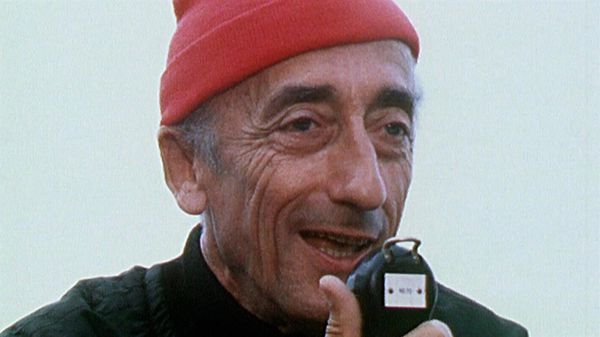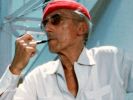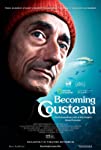Eye For Film >> Movies >> Becoming Cousteau (2021) Film Review
Becoming Cousteau
Reviewed by: Anne-Katrin Titze

Three highlights in the 12th edition of DOC NYC’s Short List program shed light on the workings of adventurous, troubled men who have been idolized by many and put on a pedestal as role models of independent masculinity. Lou Reed in Todd Haynes’s look inside The Velvet Underground, Anthony Bourdain in Morgan Neville’s fast-paced Roadrunner: A Film About Anthony Bourdain (these two share a Jonathan Richman connection), and Liz Garbus’s revealing Becoming Cousteau on Jacques-Yves Cousteau.
Through writings by Cousteau, read by Vincent Cassel, interviews, and plenty of archival footage from above and below sea level, we learn about his life. How a bad accident ruined his chances as a French navy pilot, and how his wife Simone (both of her grandfathers were admirals) told him in 1937: “I give you two children, you give me the sea.”

Jacques-Yves Cousteau, the most famous explorer of the oceans, known by anyone who grew up during the second half of the 20th century from his many fascinating TV programs, is always worth another look. Liz Garbus traces Cousteau’s moral development from a daredevil who saw the underwater world as his playground to someone who became a groundbreaking fighter for environmental causes.
After the war, mentioned for a mere minute, a new chapter in underwater research began in Toulon, France. In 1951 the first trip begins on the legendary Calypso, which had started its life as a mine sweeper in America. A group of volunteers and the whole family, which included Simone, their two sons Jean-Michel and Philippe, plus their dachshund on board are seen in what looks like one big adventure.
Alone the clothes they wear make you swoon and the colourised underwater images do the rest to transport us into a magical world. But not for long. Besides later family tragedy and a double life, the inventor of an underwater camera, who together with his cameraman Louis Malle, gave us The Silent World in 1956, had trouble brewing.
Pollution and the destruction of ocean life could no longer be overlooked. Cousteau and his team came a long way from catching fish with dynamite, balancing on land on the shells of giant tortoises, or taking money from oil companies to search the Persian Gulf for them. The sea is in distress and has been for “the past two centuries,” he explains to adults and to the many children, who were his greatest and most alert fans.
In the 2017 Rendez-Vous with French Cinema programme in New York, Jérôme Salle’s The Odyssey screened with a perfectly cast Lambert Wilson as Jacques-Yves Cousteau. In 2015, I spoke with Cousteau’s granddaughter Alexandra, Expedition Blue Planet filmmaker and Senior Advisor with Oceana at their 1st Annual Nautica Oceana City & Sea Party held at the Gansevoort Park Avenue Rooftop. She told me: “I was on expedition with Oceana in the Baltic. Oceana really adopted the idea that images and film are critical to having leadership, politicians and people who are making the decisions understand why this area should become a marine protected area.”
The Cousteau Society’s work for environmental protection, his poignant attack of the shamelessness of industry, and his farsightedness concerning Antarctica in 1979s Voyage To The End Of The World, are important parts of his legacy. Garbus begins her film with one of his events and the kids’ expressions and questions are inspiring to this day.
Reviewed on: 10 Nov 2021
















